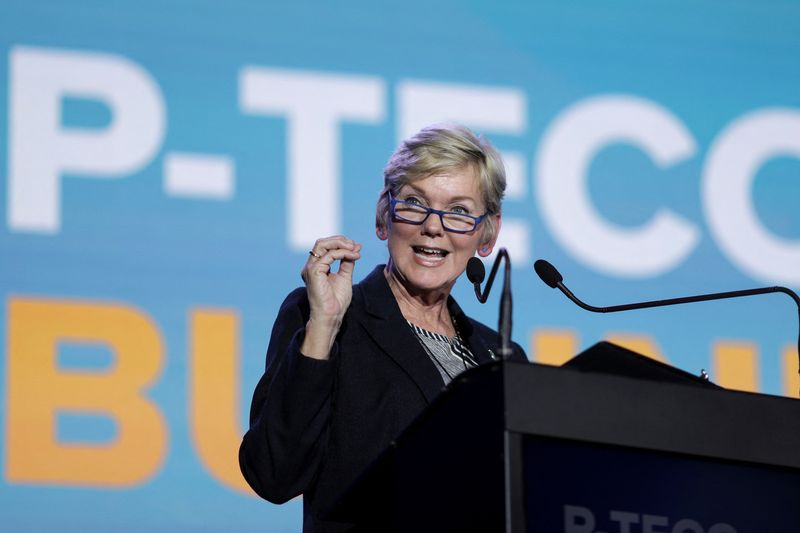By Luiza Ilie
BUCHAREST (Reuters) - The United States is working with Ukraine on a roadmap for its post-war energy grid which will include safe nuclear power technologies as well as renewables, U.S. Energy Secretary Jennifer Granholm said on Wednesday.
Ukraine has lost half its generating capacity as a result of Russian attacks on its power plants, leading to constant shortages and mass blackouts in all regions.
"Right now, they are under assault and we have to help get them through this period of time, we've got to harden their existing assets," Granholm told Reuters in an interview on the sidelines of an annual Transatlantic Energy and Climate Cooperation (P-TECC) conference in the Romanian capital Bucharest.
"But ... we are planning with them for what does the Ukrainian grid of the future look like," she said.
"So it might involve micro-reactors. It might involve SMRs. It definitely will involve distributed generation of solar and wind coupled with batteries. So that work is being done now."
She said new nuclear capacity could be a part of the future grid as long as it is designed in a way that is secure.
Ukraine operates nine nuclear reactors at three plants in territory it controls which produce more than 55% of the country's electricity needs, but Kyiv wants to expand the sector to help compensate for the loss of Zaporizhzhia's six units, seized by Russia shortly after its invasion in 2022.
In January, Ukraine's energy ministry said it expected to start construction work on four new nuclear power reactors this summer or autumn at its Khmelnytskyi nuclear power plant.
Ukraine's state-owned nuclear power firm Energoatom has also signed an agreement with Westinghouse for the construction of further reactors.

"We have an agreement to look at deployment of nine AP1000s in the country," Westinghouse corporate affairs vice-president Margaret Cosentino told P-TECC in Bucharest.
"Obviously, we are not breaking ground at this point in time but ... we have been working closely with them to look at Kamilnitsky 5 and starting to look at what we can do now to position shovel-ready projects for as soon as the war is over."